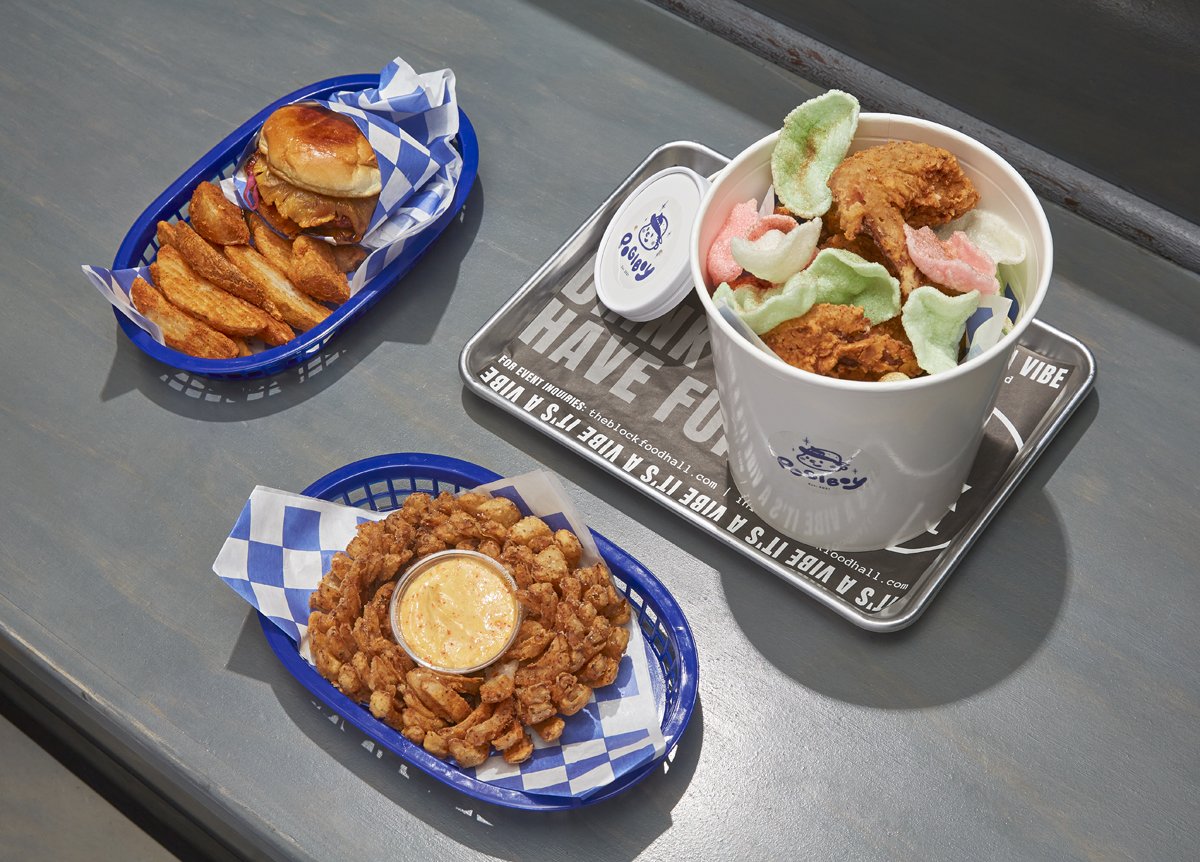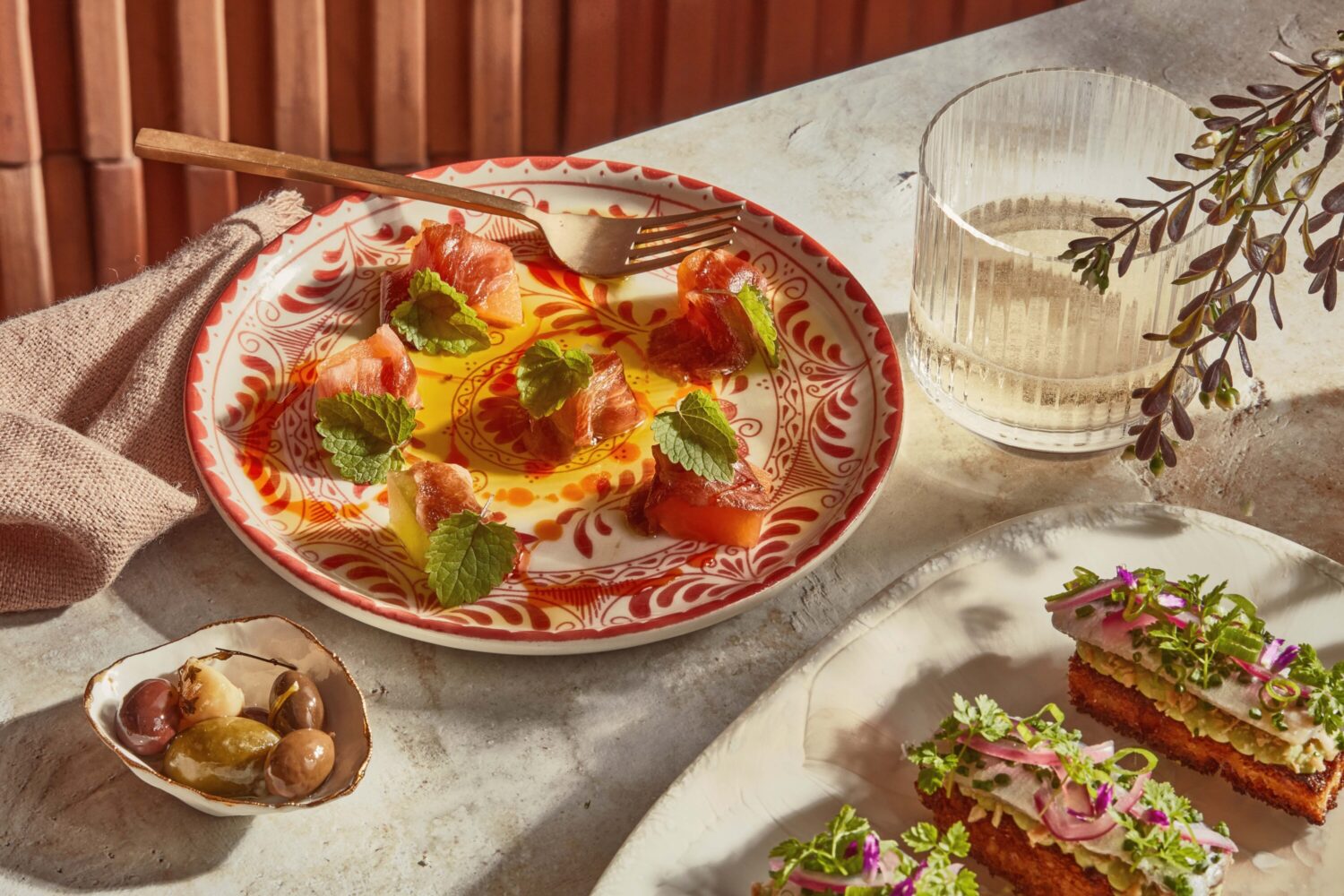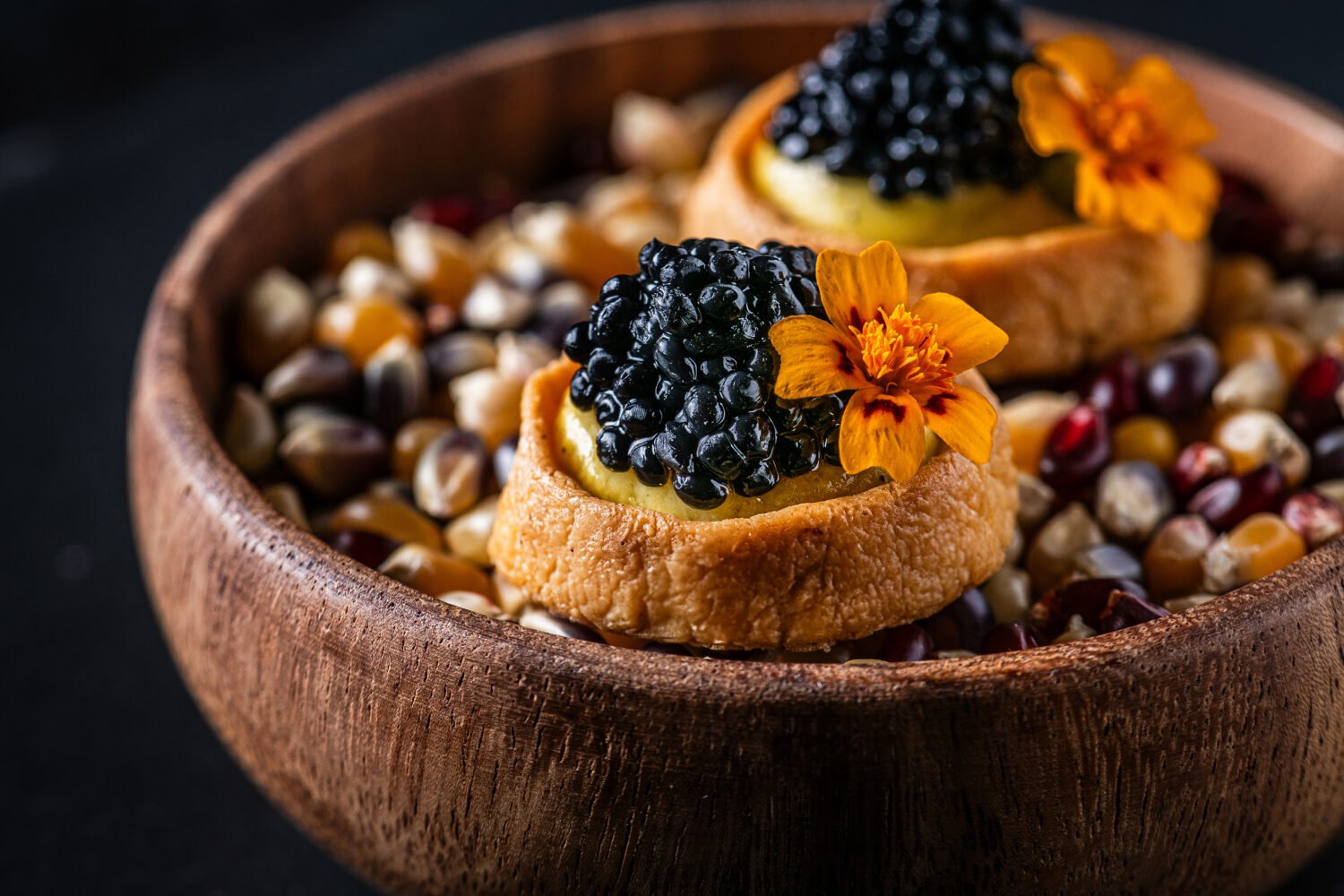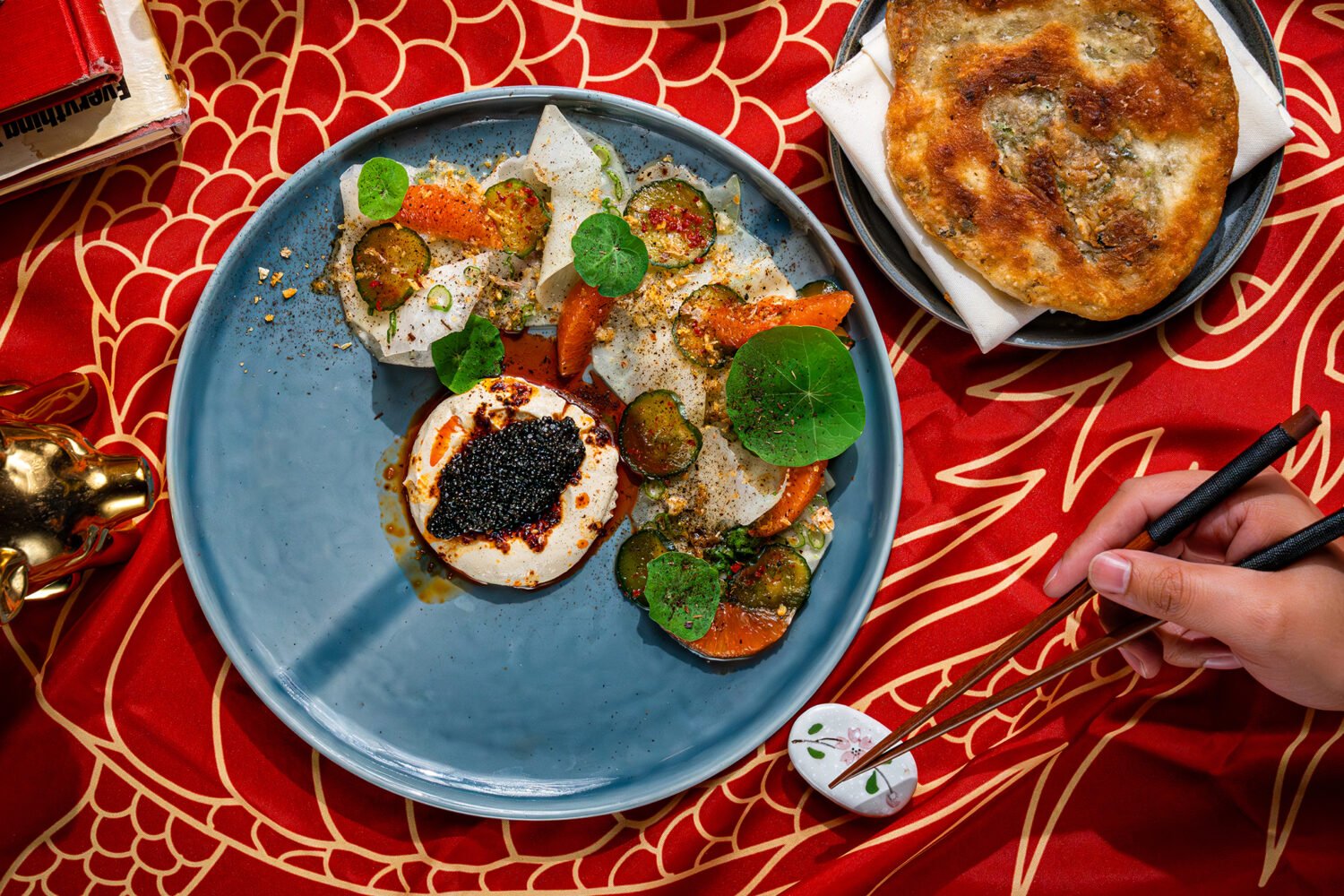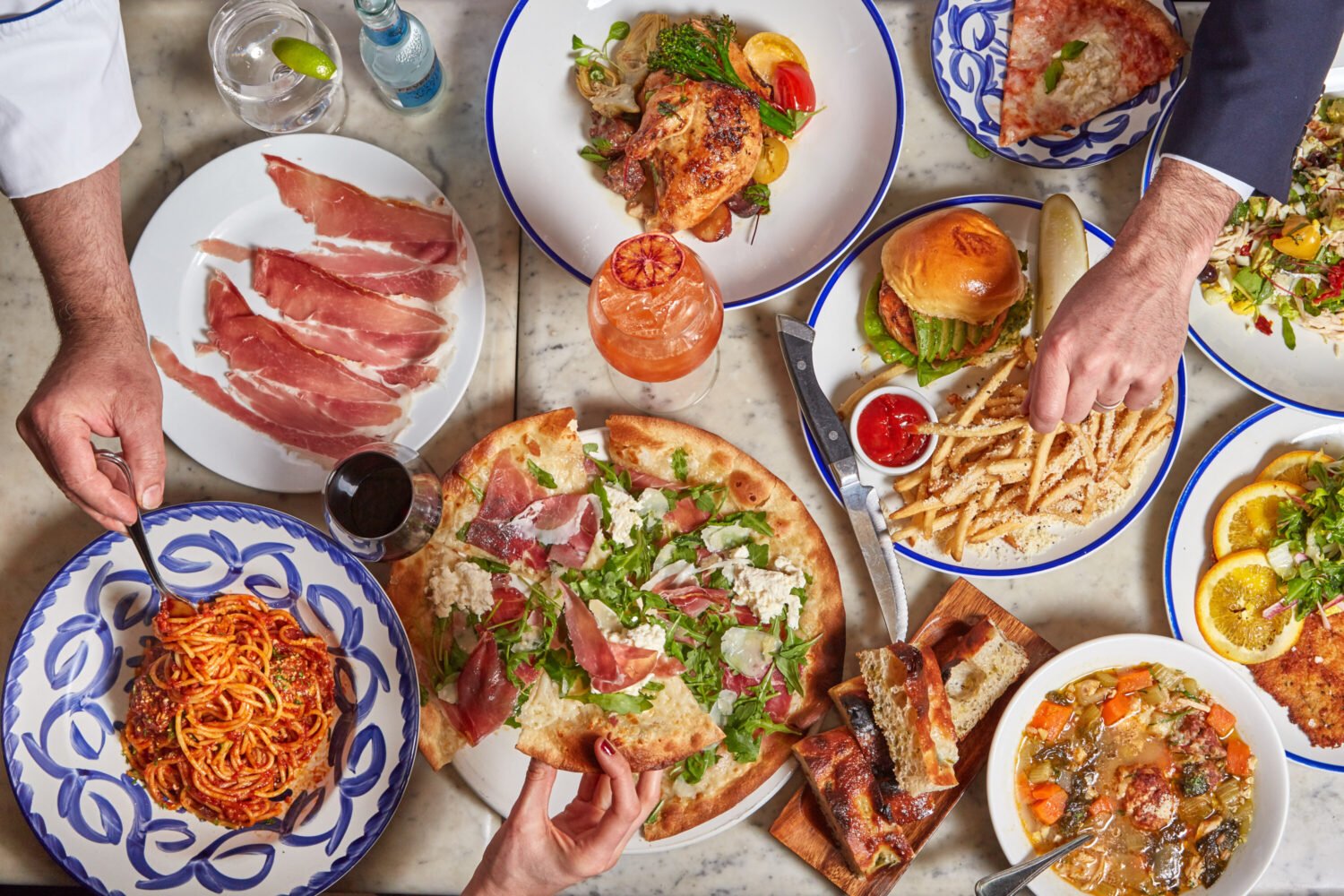During the pandemic, there was one sector of the restaurant industry that flourished: cheffy fast-casual. So when the desk salad makes its inevitable return, it will have plenty of fresh competition. Three upstarts we love:
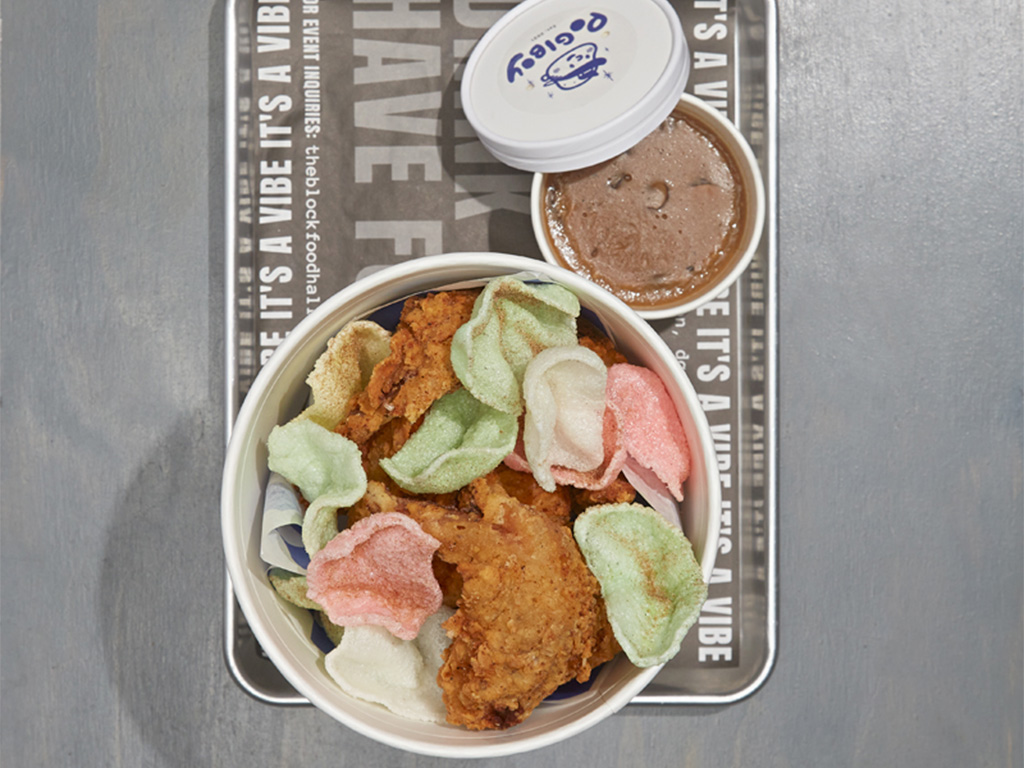
Pogiboy
1110 Vermont Ave., NW (inside the Block)
For chef Tom Cunanan, it was the James Beard Award he got for his work at the Filipino hot spot Bad Saint that pushed him to go out on his own—a plan accelerated by the pandemic. While Cunanan has an ambitious vision for a tasting-menu restaurant, he has also teamed up with fellow Bad Saint alum Paolo Dungca for a walkup spot inside the Block food hall in downtown DC.
The place, which opened in January, is full of winks. There’s a riff on Outback’s Bloomin’ Onion. (A classic Cunanan touch: savory crab-fat mayo for dipping.) Pogiboy’s logo conjures the apple-cheeked kid from Bob’s Big Boy. And the menu, with its smash burgers and fried chicken, was largely inspired by Jollibee, the Filipino fast-food behemoth (and cult favorite of American foodies) that recently opened its first local branch in Wheaton.
At Pogiboy, the smash burger deserves as much love as its inspiration. Usually, that style of burger is more about the sum than the parts. Here, the meat is so good you’ll actually want to taste it. The chefs grind beef from Maryland’s Roseda Farms, then form it into 3.6-ounce patties. (They wanted them to be more generous than the 3.3-ouncers at Five Guys.) Caramelized adobo-spiced onions, cheese, and special sauce finish it off.
The pair’s tocino burger has already developed a following. The magenta-tinted patty is formed from cured pork and longanisa sausage. It’s on the sweet side, but there’s enough sour, in the form of pickled green papaya, carrots, and cabbage, to balance it out. I’d also pick up a “Eugene” sandwich, named for Cunanan’s late brother. It’s a hefty portion of thinly sliced, marinated top round that’s countered with a serious dose of horseradish, as well as onions both raw and cooked down.
The chefs’ fried chicken is made memorable by a marinade that includes buttermilk, puréed long peppers, and calamansi, the citrus that’s ubiquitous in Filipino cooking. It gets a double fry and stays crunchy even if you stick it in the fridge. A rotisserie version of the bird is marinated in burnt coconut and curry for three days, then sided with the same coconut-milk-creamed kale you’d once have found at Bad Saint.
There’s already a late-night menu, with poutine and sinigang chicken quesadillas, but Cunanan and Dungca—both major talents who are there every day—have bigger plans for Pogiboy when offices reopen: happy hours, catering, and more seating. As at Bad Saint, I wouldn’t be surprised if there’s a line to contend with, too.
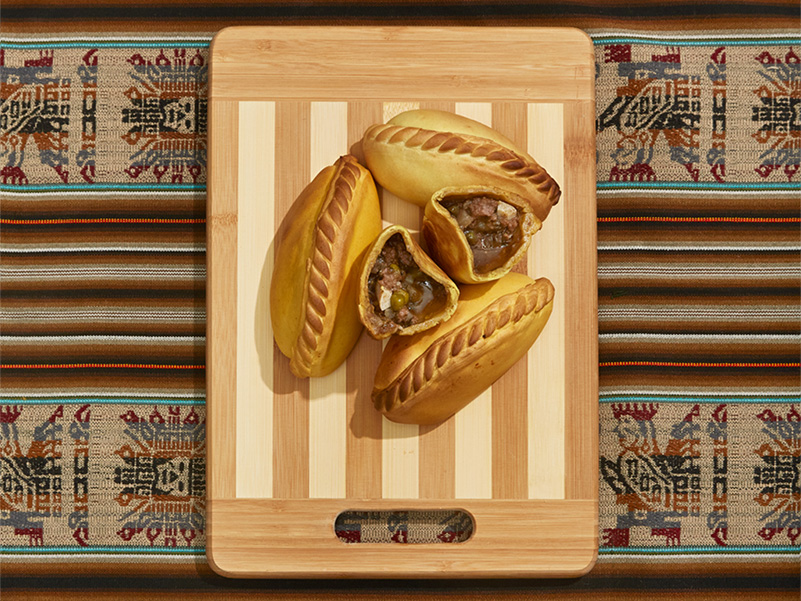
Saya Salteña
1819 Seventh St., NW
It took Maria Helena Iturralde an entire year to perfect the dough for her salteña, the crescent-shaped Bolivian snack that’s sort of like an empanada but filled with a soupy beef or chicken stew.
She’d tinker with her recipe on weekends—when she wasn’t tied up with her DC catering company—and seek alternatives to the yellow-orange dye found in most Bolivian salteñas (she came up with a mix of turmeric and annatto seed) or the vegetable shortening that imparts to the crust a great crunch (no dice on that one).
That struggle turned into Iturralde’s safety net when her catering business came to a halt last year. She launched Saya Salteña, in part to hang onto her longtime employees. When food halls such as Union Market and La Cosecha wouldn’t give her the time of day (“They wouldn’t even taste the food!”), she began to build a following by popping up at breweries. She now has a delivery/pickup business out of a storefront in Shaw.
The small menu has a few extraneous things, such as pork-filled sliders and steamed corn cakes, but really you’re here for the salteñas. They take three days to make, and they’re terrific. If you’re new to them, approach one as you would a soup dumpling: Bite off the tip, then slurp the steaming liquid. (Iturralde includes instructions for each order.) Whether you go for beef or chicken, you’ll also find bits of hard-boiled egg, kalamata olive, and diced potato. I head for the spicy beef pocket. It’s really not that spicy at all, because it’s laced with aji, the Andean pepper that delivers a slow burn rather than a punch.
The menu’s other big hit is the cunape, a small, soft cheese puff made with tapioca starch and egg. Figuring that out wasn’t easy for Iturralde, either. It didn’t take a year—but it did take recipe-testing with roughly 50 Latin American cheeses.
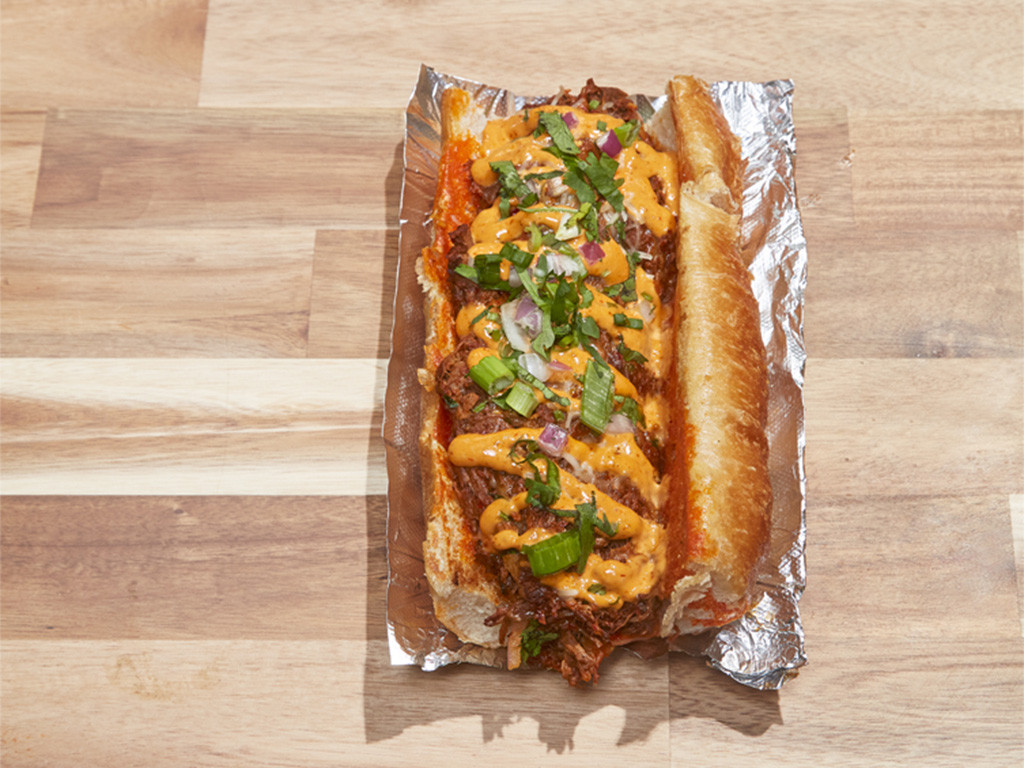
Little Miner Taco
3809 Rhode Island Ave., Brentwood (miXt food hall); 967 Rose Ave., North Bethesda (The Block)
Birria—the stewy taco filling made from long-cooked beef, lamb, or goat—has become so popular in the States over the last year that I wouldn’t be surprised to see it turn up at the Cheesecake Factory. What sets the taco apart—and has turned it into a TikTok craze—is that you dip the meat-stuffed tortilla into a brick-red consommé made from the braising liquid.
Although birria has long been on the menu at traditional spots such as Columbia Heights’ Taqueria Habanero, the Jalisco-born dish has been popping up more and more around here. (See Taqueria Xochi, Mama Tigre, Rebel Taco.) Mackenzie Kitburi was a birria early adopter. His Little Miner Taco began in 2019 as a stall in a Brentwood food hall. It has since spawned two food trucks—one in Baltimore—plus a stand inside the Block food hall at Pike & Rose and a forthcoming location in Brookland.
Kitburi buys whole animals, so his birria is a mix of halal beef cuts—you might find rib eye, you might find tenderloin—and he cooks the beef for eight hours in a French-style stock. He serves it in many forms: ramen, egg rolls, and, most successfully, a cheesesteak zigzagged with chipotle aïoli. Good as that sandwich is, the birria is best sampled in one of its most classic forms: quesabirria de res. The corn tortilla is lined with cheese, and it spotlights the richness of both the meat and the broth. Birria tacos make up half of Kitburi’s sales.
A nice touch: Kitburi, a father of three, lets kids eat free.
This article appears in the June 2021 issue of Washingtonian.

